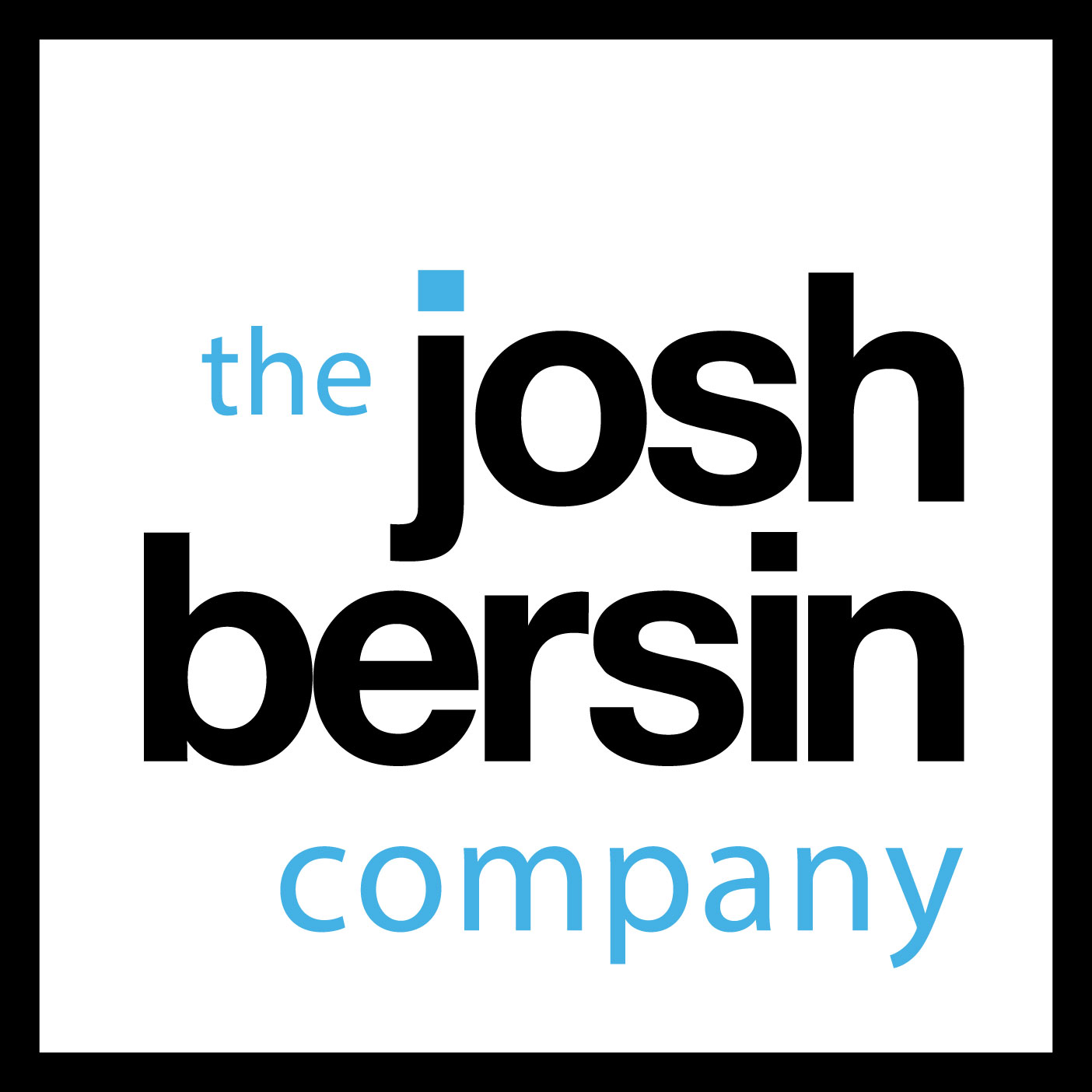Episode Transcript
[00:00:00] Speaker A: Well, this week we saw the beginnings of the long term tectonic shift in enterprise software. At ServiceNow's annual customer conference, the company essentially announced a rebranding and reconfiguration of all of its products around AI agents and similarly launched its first end user business application, ServiceNow for CRM. And what you're seeing them do is what virtually every software engineering business to business company is doing, and that is to redesign the traditional corporate software around AI agents.
And architecturally, this is a huge shift away from the traditional Oracle SAP workday approach of building a big database and giving you transaction interfaces to put things into it, towards building a series of applications that use the power of AI to power workflows and business processes that are much more intelligent and much more integrated. And what I mean by this, as I talked about this week at the Unleashed Confidence, is we're moving away from software that automates one small functional business function to software that can automate a series of business functions in an integrated flow. In the case of hr, if you think about recruiting and onboarding and training and performance management and leadership development and succession management and career development and retirement, all of those standalone functional areas fit into a process that we used to call pre hire to retire. But none of the tools worked that way. They were standalone systems, each of which were optimized towards those standalone functions. And we also set up HR the same way.
[00:01:56] Speaker B: That old functional isolation approach goes back.
[00:02:01] Speaker A: To the industrial age when we had factories and jobs that were very structured around the functional areas of a manufacturing process. Companies don't work that way anymore, especially in hr. All of these things are stitched together and that is the fundamental idea behind our systemic HR operating model. From a software standpoint, none of the vendors really built these cross functional applications very well because they didn't really have the market or the technology to do so. The market segregated itself into small sub segments. There was a market for applicant tracking systems, there was a market for sourcing systems, there was a market for assessment tools, there was, there wasn't a market for onboarding tools, there was a market for performance management tools, there was a market for career development tools, there was a market for training tools, you know what I mean? They were all isolated. And so we went out and bought all these things and tried to connect them together and each of the functional areas in HR who owned those functions used those tools. So it all kind of worked because the buying market was set up to buy standalone category applications which were developed for these isolated use cases. In reality though, as I've really observed for many years the high value in software is not automating one little thing. It's automating a workflow or a process and giving you lots of intelligence about how to make the whole process better. Because recruiting isn't really about recruiting. It's about growth and time to productivity. The reason we recruit somebody is not because we want to have another headcount in the company generating spends.
[00:03:47] Speaker B: It's because we want to have another.
[00:03:48] Speaker A: Headcount in the company generating revenue or profit or product innovation or something else. So why would we measure the value of recruiting by how quickly we hired them when that actually isn't really that important? What's really important is how quickly they add value or how quickly they improve things in a real business context. And so the way we measure stuff and the way we build things was not really designed in an optimal way. Now, I'm not the first one to think of this, of course, because analytics firms have been trying to build analytics tools that do this for a long time, but we actually can do this with AI. And I've spent a lot of time.
[00:04:27] Speaker B: With a lot of vendors, maybe criticizing.
[00:04:29] Speaker A: Them a little bit that they're not thinking this way enough. Because I'm seeing it this way everywhere now. In my mind, every single thing that was developed in my domain of HR.
[00:04:41] Speaker B: That was a standalone process, including things like payroll and, you know, simple things like that should be reimagined, redesigned around a, an agent. And I think there's this picture that.
[00:04:55] Speaker A: Keeps appearing from different architectures and vendors.
[00:04:59] Speaker B: That we're going to have all these.
[00:05:00] Speaker A: Little agents talking to each other. There's going to be a little payroll agent, little onboarding agent, little performance management agent and all that. I don't think that's actually the way it's going to work. It may look like that for a little while.
[00:05:10] Speaker B: I think there's going to be an.
[00:05:11] Speaker A: Integrated agent flow that's going to manage all this stuff, and that's where the big value is going to be. Right now you've got these weird visions like from Salesforce, that we're going to.
[00:05:22] Speaker B: Have human agents that are like humans.
[00:05:24] Speaker A: Doing isolated little things, little clusters of tasks.
[00:05:27] Speaker B: I don't think that's the way it's going to go at all.
[00:05:29] Speaker A: Because if I was a software engineer building an agent for onboarding, I would immediately think about the flow from before onboarding, through after onboarding.
[00:05:38] Speaker B: And since AI is so flexible in our technology, I can do that using.
[00:05:43] Speaker A: The intelligence of the data that comes.
[00:05:44] Speaker B: Before and the intelligence of the data that comes after.
[00:05:47] Speaker A: I don't have to redesign the whole system to do a more integrated workflow.
[00:05:51] Speaker B: If you go inside a company like.
[00:05:53] Speaker A: SAP or Workday, for example, or most.
[00:05:55] Speaker B: Of the ATM companies, what you find is product managers are focused on one small thing because that's the way they've developed their software.
[00:06:02] Speaker A: So when you go to the trade shows and you look at their demos, they'll show you a module that does this one thing.
[00:06:08] Speaker B: They don't realize, or they're not thinking, or they're not able to understand that actually in the company that one thing isn't that useful without all the other things with it.
So they actually kind of sell the product as if it had a bunch of little mini apps in it, each of which were designed for a different person. Now, you know, the integrated demos, of course, show the whole process. And that's, you know, ultimately the reason people buy these software tools.
[00:06:36] Speaker A: But.
[00:06:36] Speaker B: But in reality, they don't really do that very well. And I think it goes back to the concepts of ERP, which come back, by the way, from the 1970s, 1980s, where the definition of ERP was enterprise resource planning, or really treating business processes like a manufacturing company treats parts supply chain in the development of a physical object. And human capital management, by the way, even the name of it is a little bit old because we're thinking of the human capital like the physical capital, and we're treating the development and performance of a person like the development of a car, where first we have to get this part and then we have.
[00:07:20] Speaker A: To get that part and then have.
[00:07:21] Speaker B: To build this sub assembly and then that sub assembly goes into the next sub assembly. That's not the way things work as you know, in hr.
So this is a big, big shift. It's not going to happen overnight, but it's going to happen pretty fast because there's so much innovation and creativity in the software industry. And it's so easy to build apps in an agent system.
And the data intelligence comes built in from the LLM or lrm. You don't have to build that because it's already there. You can use the ones that are available. We're going to have a lot of these integrated workflow apps. And I talk to vendors all the time that have built a standalone system for, say, coaching, for example. That's a big one. And I look at it and I'm like, you know, it's not that useful to me if it doesn't have a relationship with the person's Job history, the job itself, the business teams, they're part of the other things around it. Why would you have a data, a digital coach that. That only can teach you stuff based on some book or some, you know, arcane leadership model, and doesn't understand all the other things that are going on in your job? It wouldn't be that useful. So even things like a digital coach don't make sense unless they're integrated into a workflow. Thus why ServiceNow is becoming so big. Because everything ServiceNow does is built around a workflow mentality in a workflow architecture.
And, you know, there's another term that's sometimes thrown around called orchestration, which is another word that's sometimes used for this.
I don't really like that as much. I like workflow better because, you know, to me, a workflow is a series of steps that stream together to solve a problem. You know, the company that's the best at this that I've ever really observed is, you know, when you order a product from Amazon, it feels like an integrated, seamless workflow. From the minute you order it to the minute it shows up as your doorstep, to the minute you see that photo of the object sitting on your steps, to the minute they ask you to rate it, to the minute you return it. It feels like they developed that as one integrated process. You know, I'm sure they didn't, but they thought about it that way and look at how successful they are, and they created these paradigms that other companies are copying. And I don't think the software industry has been thinking that way. They've been thinking about it as software market categories. Build a tool, enter the category, compete with the current category players, and, you know, make a bunch of money. I mean, you know, the example that I think is sort of interesting to me is the CRM market. And I happen to know CRM really well because I've been so involved in starting our own businesses here. We used Salesforce for a long time at Burson and Associates, and we bought it when it was very young, actually. It was a smaller company and we built a lot of things using the code base under Salesforce. It was called Apex at the time. I don't know what they call it now. It was actually kind of a very difficult thing to use. But we built all sorts of reporting and analysis of our memberships and renewal rates and stuff. And then it became, you know, complicated and expensive and they kept jacking up the price and harder to use and slow because it's a very old piece of software. I mean, it's, I don't know, 20 years old, maybe more. And when I left and went to Deloitte, you know, of course Deloitte had a bunch of other stuff they were using, so they didn't really keep it. And then when I left Deloitte and started our new company, we used HubSpot and HubSpot was 10 times faster, much, much cheaper and much more functional. And we've built a very, you know, integrated experience for our prospects, clients, people who buy things, all sorts of stuff around HubSpot, around Stripe, a bunch of other tools. Well, even HubSpot, which is in some sense the new version of Salesforce for medium sized companies, not giant companies, is now under attack from a bunch of new ones. And these are agents that you can send you an email or talk to you on the phone using AI and then keep track of who you are on the web using web based analytic tools and communicate with you as if they are a salesperson. Those products today are not likely to come from Salesforce or HubSpot because they don't think about it that way because they've, they're maintaining the products they have. And I would say Salesforce does a good job of marketing and they're trying to build an open app marketplace to try to collect these guys. But a lot of these guys are going to be direct competitors to Salesforce. So I don't know that they're really going to be so excited about promoting the AI based startups that take their business away.
But it's going to happen and you know, the startups and the younger companies that need CRM in the next decade are going to probably use a new generation of tools. That is going to happen in hr. It hasn't happened yet, but it will, there will be another new workday. Workday is a great, great company. Really, really successful company. I admire them tremendously. They were invented in 2006, 2007 to be the pioneer of the web, of the cloud. That was all. Their whole strategy was to be a cloud architecture based system, not an AI based system. There was no AI at the time and that is what made them so successful because they beat SAP and Oracle and all the other HCM vendors to market in the days when we wanted cloud based architectures. Same thing's going to happen again.
If there's someone out there who's building one of these AI powered HCMs, I'd love to talk to them. You know, there's gloat, there's Eightfold, there's Other Beamery, there's, there's companies that have kind of come close to this, but none of them have taken the end to end ACM approach or process based approach that I'm talking about yet. But they will. One of the ones we're talking to that's a really interesting company is called Maki People that is actually taking an entire approach to this initially in recruiting. And when you use it, Maki People is a, today it's an end to end recruiting system that's very successful and they're coming to the US now. They're mostly in large European companies. Their vision is to do the whole human capital pipeline. And the people that founded Machi People did not come from hcm, they came from another market. So they're looking at it with a fresh set of eyes. And anyway, this is what's going on and enter into all of this, of course Galileo. And you know, we're savvy enough and I've had enough product experience that we're going to be a big part of this. We, you know, our intelligence and data and tools that we've been developing for close to 30 years are getting integrated into all these things. I mentioned earlier this week, we've integrated Galileo into ServiceNow. So if you're using ServiceNow or if you're enamored with ServiceNow, you can get Galileo right in it. So we can, we can make ServiceNow an HR consultant, an HR agent, an HR developer and H a recruiter. Lots of things like that. We've integrated into hibob, which is an HCM that's very modern and very sophisticated that we happen to use that's targeted towards the mid market and we're working with a bunch of other vendors who you'll hear about later in the year. And just to give you a preview of what's coming in the next couple of weeks, in the week of May 19, is our conference irresistible?
And not only are we going to have a lot of amazing people there and sharing just incredible stuff about their HR functions and their strategies and their AI projects and their recruiting and learning and career development and skills and all that, we're going to launch the next big part of the Galileo strategy and I call it a part because what you're going to see is an add on or a new piece of the Galileo family that moves Galileo into an even more interesting direction that every company needs. And I will leave it at that. And you guys can stay tuned until a couple of weeks to hear more about it. So anyway, that's what's going on in HR Tech.
[00:15:03] Speaker A: I just spent three days on this.
[00:15:05] Speaker B: At Unleash and we're happy to talk to you about your strategy. I think a lot of you are going to want to rethink your long term tech architectures. Going to do a lot of investigation of the market.
[00:15:16] Speaker A: You have to look around at some.
[00:15:17] Speaker B: Of these new tools, but you're going to be encouraged to do this because your IT department is undoubtedly looking at AI everywhere in the company and they're going to expect you to do the same thing. Thanks a lot. Talk to you guys again soon.


